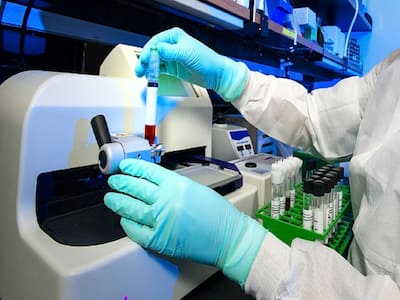
Nutrigenomics research aims to determine optimal nutrient intake levels based on genetic factors. This can help prevent overconsumption or deficiency of certain nutrients, promoting overall health.
In the world where we have multiple sources and experts to reiterate the healthy goal tips, it becomes quite perplexing to decide the right diet and nutrition for optimal health. But nutrigenomics can provide some clarity to us. Nutrigenomics or nutritional genomics is the study of how genes and nutrition interact; it depends on individual’s genes to respond to certain nutrients. It is a cutting-edge field in nutritional science that focuses on the interaction between genes, diet, and health. It aims to understand how individual genetic variations influence responses to nutrients and dietary patterns, with the goal of tailoring personalized nutritional recommendations for optimal health outcomes.
Here are some key points to describe how Nutrigenomics work and help people in understanding their correct diet for better health!
What Is A Genetic Variability?
Our body is made of different genes i.e. different units of heredity that are made of DNA. Since everyone’s genetic makeup is unique, their body processes respond to different nutrients. The role of Nutrigenomics is to identify specific genetic variations that influence nutrient metabolism, absorption, utilization, and other physiological responses.
How Is The Personalized Nutrition Made For Someone?
As mentioned above, our bodies react to different types of food and nutrients. Hence, nutrigenomics is used to determine the right nutrition for the person. It helps to give some personalized dietary recommendations based on individual’s genetic profile. By considering genetic predispositions and variations, experts can design diets that align with an individual’s specific needs, helping to prevent and manage various health conditions.
How Is The Nutrient-Gene Interactions Important?
Nutrient-Gene interaction is the fundamental mechanism of Nutrigenomics. It sees how certain nutrients react to individual’s genes eventually affecting their overall health. For instance, variations in genes related to metabolism, inflammation, and antioxidant defense can impact responses to nutrients like vitamins, minerals, and fatty acids.
Nutrigenomics Can Help In The Prevention Of Chronic Diseases
Research shows that Nutrigenomics has potential to prevent a person from chronic diseases like heart disease, diabetes, obesity, and certain cancers. By identifying genetic factors that increase disease risk, personalized dietary interventions can be developed to mitigate those risks. These factors look up closely to every tiny details that may impact one’s body and hence gives the best plan for optimal health.
window.addEventListener(‘load’, (event) => {
$(‘#commentbtn’).on(“click”,function(){
(function(d, s, id) { var js, fjs = d.getElementsByTagName(s)[0]; if (d.getElementById(id)) return; js = d.createElement(s); js.id = id; js.src = “//connect.facebook.net/en_US/sdk.js#xfbml=1&version=v2.3”; fjs.parentNode.insertBefore(js, fjs);}(document, ‘script’, ‘facebook-jssdk’));
$(“.cmntbox”).toggle();
});
});








